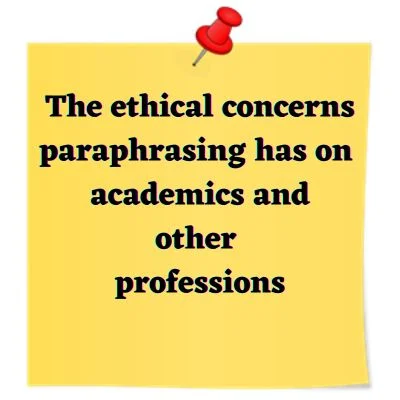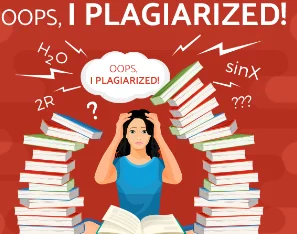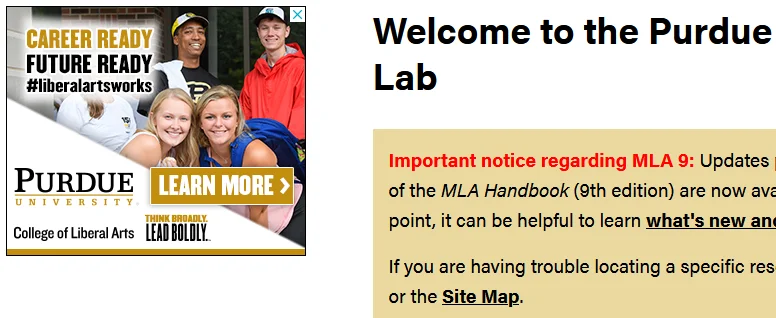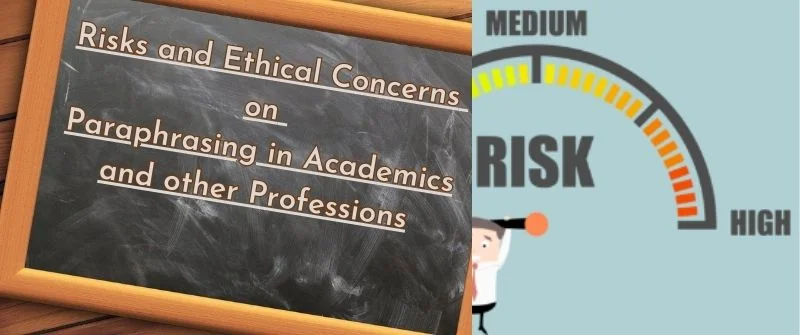Paraphrasing can be risky in the venture because it is seen as plagiarism. The attempt to pass off someone else’s writing as your own is known as paraphrasing.
Because they can occasionally seem extremely similar in various contexts, it is simple to mistake paraphrasing for plagiarism.
This piece of writing will assist you in understanding paraphrasing and its dangers in your studies and professional life.
Ethical Concerns on Paraphrasing in Academics
However much students try to use other people’s work as their own, there are ways teachers detect paraphrased work.
Here are some ethical concerns paraphrasing has in the academic field.

Academic Integrity and Plagiarism
Plagiarism is the misuse of another person’s work without giving due credit. It is a major academic writing offence with key repercussions, including expulsion from school.
If the writer fails to cite the information’s original source correctly, paraphrasing may constitute plagiarism.
The possibility of using paraphrase to avoid plagiarism without properly citing the original author is one of the primary ethical issues with this technique.
The author, in this instance, might alter a few words or phrase constructions, but the key idea is still the same. This kind of paraphrasing may seem immoral and may have serious repercussions.
Accuracy and Misrepresentation
Another ethical concern is the risk that the writer would misinterpret the original author’s thoughts or argument when they paraphrase.
Ensuring that the original text’s content and intent are appropriately expressed while paraphrasing is crucial. It might be considered immoral and dishonest if the writer does not adequately convey the original author’s ideas.
Intention and Fair Use
Writers may use a small amount of copyrighted material without their consent under the fair use doctrine, but only if they use it for particular tasks like criticism, commentary, news reporting, teaching, scholarship, or research.
Paraphrasing outside the bounds of fair usage is unethical and may have legal repercussions.
The purpose of the paraphrase
Another crucial ethical issue is the purpose of the paraphrase. It may seem unethical if the author intends to change the original material to advance their viewpoint or give the impression that they have done more research than they have.
However, paraphrasing can be effective if the writer wants to give more context or make difficult concepts easier to understand.
Risks of Paraphrasing in Professional Writing
Risk of integrity

One key concern is losing one’s integrity when paraphrasing in professional writing.
A writer may face plagiarism charges and harm their professional reputation if they rely too heavily on paraphrasing without properly citing the original source.
An inaccurate paraphrase that misrepresents the concepts in the source can also undermine the author’s credibility and moral character.
Therefore, writing professionals must be careful when paraphrasing and accurately convey the original author’s thoughts while giving due credit.
Losing a job
If a writer is guilty of copying or misrepresenting the source’s ideas, their job may end. This is especially true in journalism and academic writing, where truthfulness and morality are paramount.
Strong ethical standards and a dedication to delivering original and correct work are qualities that employers admire in their employees.
Writers must take care while paraphrasing in their professional writing to avoid potentially harmful effects.
Lack of Originality
While paraphrasing can be an effective strategy for professional writing, certain risks are evident. Lack of originality is one of the biggest hazards since writing too closely to the source can produce unoriginal and uncreative work.
Furthermore, there is a chance of unintentionally duplicating too much of the original text, which can result in plagiarism charges.
It is crucial to ensure that paraphrasing is done carefully and intelligently, using one’s own words and thoughts to produce a unique piece of writing to avoid these pitfalls.
Risk of being caught with plagiarism

Although paraphrasing is an ideal way to incorporate information from a source, if done incorrectly, it can lead to the use of an excessive amount of the same words or sentence structures as the source.
Even so, this may result in charges of plagiarism if it lacks adequate citation.
To minimize this risk, one must use one’s own words and thoughts while paraphrasing, precisely reflecting on the source, and consistently citing all cited sources.
Tools and Resources for Paraphrasing
1. Paraphrasing Tools
There are several tools and resources to help with paraphrasing in professional writing. Software that automatically rephrases sentences and paragraphs while maintaining the original text’s meaning is one such tool, as are internet paraphrase programs.
QuillBot, Spinbot, and Paraphrasing-Tool are a few well-known examples. Online thesaurus and dictionaries can also help locate synonyms and other possible wordings.
While these tools can be useful, it’s crucial to remember that they shouldn’t be used exclusively for paraphrasing because they cannot always yield precise or grammatically correct results.
The finest method of paraphrasing is still using one’s own words and ideas carefully and thoughtfully.
2. Plagiarism Checkers
These plagiarism checkers can check a piece of writing for any instances of plagiarized material and to produce a report on the text’s originality. Doing this may ensure you’ve effectively paraphrased and prevent accidental plagiarism.
The well-known plagiarism detectors are Copyscape, Grammarly, and Turnitin. While these tools can be helpful, it’s crucial to remember that they’re not perfect and might not capture every plagiarism incident.
Because of this, it’s still crucial to paraphrase with caution and research and to always correctly credit the sources used.
3. Student Guides on how to Paraphrase
Additionally, tons of student manuals and tools are available to help paraphrase efficiently in academic writing. These manuals frequently provide advice on plagiarism prevention and suggestions and techniques for precise and successful paraphrasing.

The University of North Carolina Writing Center, Harvard Writing Center, and Purdue OWL are a few well-known examples.
These resourceful examples and activities appear in these materials to help students practice and improve their paraphrasing abilities.
They could enhance writing abilities and ensure one’s work is authentic and correctly cited.
4. Human Editors
Professional editors have the expertise and skills to reword text while effectively maintaining its original meaning. They can advise on correct citations and references and assist in identifying situations where paraphrasing is required.
Additionally, they can ensure that the material complies with the formatting and style guidelines of the selected citation style and is error-free.
When writing in a language, they are not a native speaker of, hiring a human editor can be very helpful. Paraphrasing can happen more accurately and confidently with the aid of a human editor.
5. Online Thesauruses and Dictionaries
Online thesauruses and dictionaries are helpful resources for paraphrasing since they can offer synonyms and other possible wordings for words or sentences that might be challenging to paraphrase.
The content that has been paraphrased can seem more natural and prevent appearing to be plagiarized by utilizing different words with comparable meanings.
Finding specialized terminology or technical jargon that might need to be translated for a larger readership can also be aided by these websites.
Additionally, non-native speakers of the language they are writing in can benefit greatly from using online dictionaries and thesauri to discover the right words and phrases to convey their message.
6. WordHippo
A website called WordHippo offers word meanings, antonyms, and synonyms. It might be useful for coming up with different terms to utilize in your writing. You can increase your vocabulary and reduce repetition in your writing by utilizing WordHippo.
The website also provides several tools that might help you with a paraphrase, including a translator and a word frequency counter.
However, it’s crucial to remember that human editing is frequently required and may not always result in the greatest outcomes when using a single tool or resource for paraphrasing.
